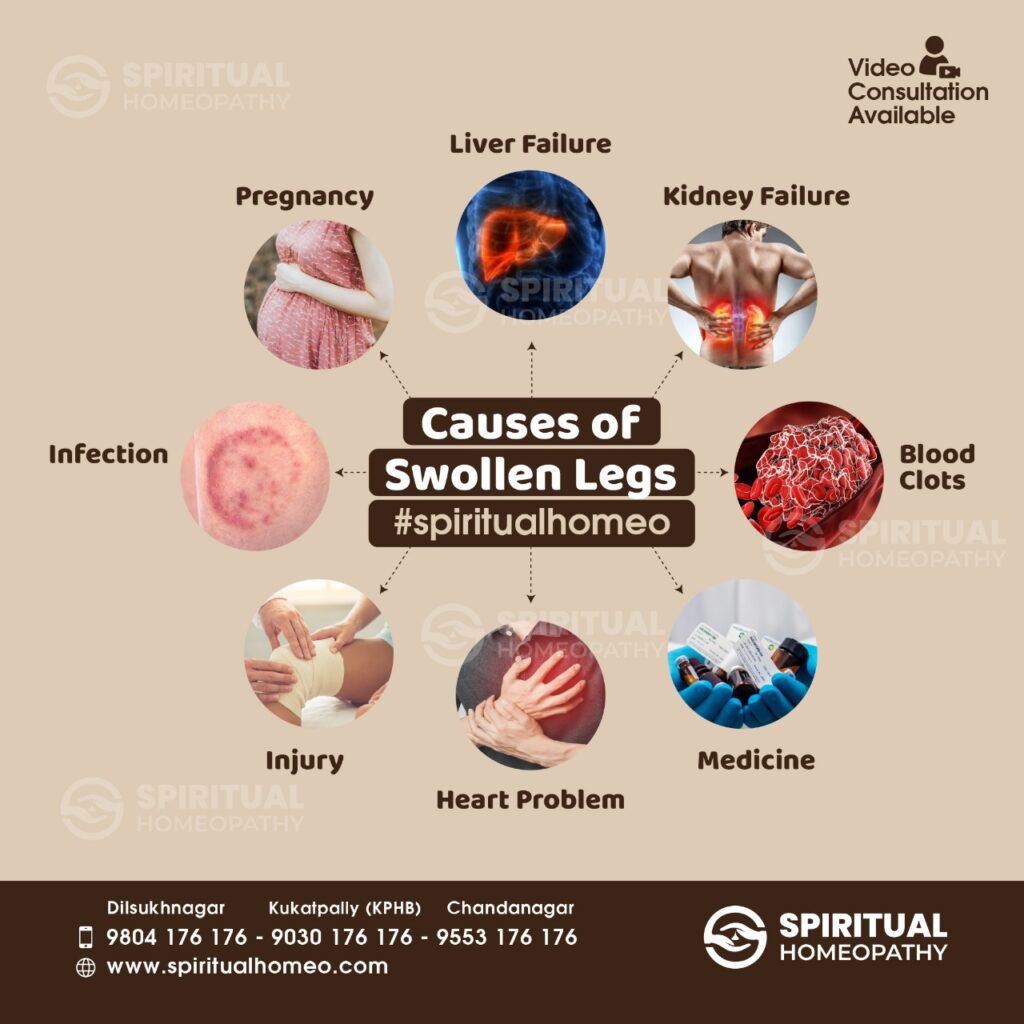Swollen legs can be caused by various factors, and it’s important to note that persistent or severe swelling should be evaluated by a healthcare professional to determine the underlying cause. Some common causes of swollen legs include:
Fluid Retention (Edema): This is one of the most common causes. Fluid can accumulate in the tissues, leading to swelling. Conditions such as heart failure, kidney disease, liver disease, and certain medications can contribute to fluid retention.
Venous Insufficiency: When the veins in the legs have difficulty returning blood to the heart, it can result in swelling. This can be due to conditions such as deep vein thrombosis (DVT) or chronic venous insufficiency.
Lymphedema: This occurs when there’s a problem with the lymphatic system, leading to the accumulation of lymph fluid in the tissues. It can be a result of surgery, radiation therapy, or infections.
Inflammation: Inflammatory conditions such as arthritis or cellulitis can cause localized swelling.
Infection: Bacterial or viral infections can lead to inflammation and swelling in the affected area.
Trauma or Injury: Injuries, such as fractures or sprains, can cause swelling as a part of the body’s natural healing response.
Blood Clot (Deep Vein Thrombosis – DVT): A blood clot in a deep vein, usually in the legs, can cause swelling and pain.
Pregnancy: Swelling in the legs is common during pregnancy due to increased fluid retention and pressure on blood vessels.
Medications: Certain medications, such as calcium channel blockers, steroids, and nonsteroidal anti-inflammatory drugs (NSAIDs), can cause swelling as a side effect.
Obesity: Excess body weight can put pressure on the veins and lymphatic system, leading to swelling.
Peripheral Arterial Disease (PAD): Reduced blood flow to the legs due to narrowed arteries can result in swelling and pain.
If you experience persistent or severe swelling in your legs, it’s crucial to consult with a healthcare professional for a thorough evaluation and appropriate diagnosis. They can determine the underlying cause and recommend the necessary treatment.




